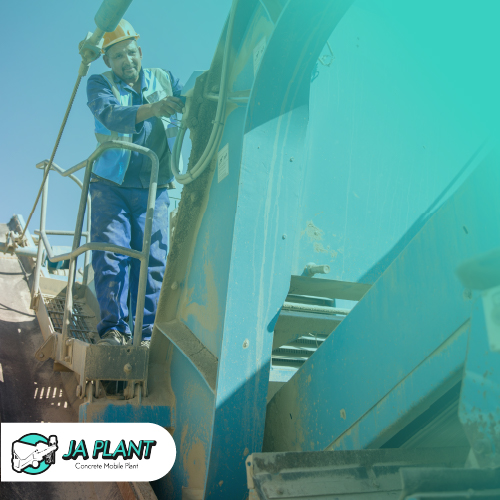The Importance of Regular Mobile Batching Plant Maintenance
4th Nov, 2024

In the dynamic world of construction and infrastructure development, mobile batching plants have become indispensable. These plants provide the flexibility and efficiency needed for projects in remote or challenging locations, where traditional stationary batching plants may not be feasible. However, the convenience and mobility of these plants also come with unique maintenance requirements that are crucial for ensuring their optimal performance and longevity.
The importance of regular maintenance for mobile batching plants
Examining how it impacts operational efficiency, equipment lifespan, safety, and cost-effectiveness.
1. Maximising Operational Efficiency
Mobile batching plants are designed to be versatile, allowing construction teams to produce concrete close to their work sites. This proximity reduces transportation costs and delays, but only if the equipment operates efficiently. Regular maintenance is key to maximising this efficiency.
Routine checks and servicing of components such as conveyors components, and control systems ensure that the plant can produce high-quality concrete consistently, without unexpected breakdowns. Maintenance tasks like lubrication, calibration, and cleaning prevent wear and tear from escalating into more serious issues, thereby minimising downtime and keeping projects on schedule.
2. Extending Equipment Lifespan
The mobility of these plants means they are often subjected to harsh working conditions, including exposure to varying weather conditions, rough terrain, and frequent relocations. This can accelerate wear and tear on critical components. Regular maintenance helps to counteract these effects by addressing minor issues before they become major problems.
For example, inspecting and replacing worn-out parts, tightening loose bolts, and ensuring that moving parts are adequately lubricated can significantly extend the lifespan of the plant. In turn, this reduces the frequency of costly repairs or replacements and maximises the return on investment.
3. Enhancing Safety on Site
Safety is a paramount concern on any construction site, and mobile batching plants are no exception. Regular maintenance is essential for identifying and mitigating potential safety hazards. Components such as electrical wiring, and safety interlocks must be inspected and tested regularly to ensure they are functioning correctly.
A well-maintained batching plant reduces the risk of accidents caused by equipment failure, such as conveyor belt malfunctions or open/damaged wiring. Moreover, proper maintenance ensures that the plant complies with safety regulations and standards, protecting both the workforce and the surrounding environment.
4. Reducing Operational Costs
While regular maintenance requires an investment of time and resources, it ultimately leads to significant cost savings. Unplanned downtime due to equipment failure can be extremely costly, not only in terms of repair expenses but also due to delays in project timelines. By conducting regular maintenance, operators can identify potential issues early, allowing for planned repairs that minimise disruption to operations. Additionally, well-maintained equipment tends to be more energy-efficient, further reducing operational costs over time.
5. Maintaining Product Quality
The quality of concrete produced by a batching plant is directly related to the condition of the equipment. Components such as the weighing systems, conveyors system must be in optimal condition to ensure that the correct proportions of materials are used and that the mixing process is thorough. Regular maintenance ensures that these components are functioning accurately, which in turn maintains the quality and consistency of the concrete. This is particularly important in projects where high-quality concrete is required to meet strict engineering specifications.
6. Supporting Sustainable Operations
Sustainability is an increasingly important consideration in the construction industry. Regular maintenance of mobile batching plants contributes to more sustainable operations by reducing waste and minimising the impact of repairs and replacement of equipment. Well-maintained equipment operates more efficiently, by reducing downtime and delays. Additionally, by extending the lifespan of the plant, regular maintenance reduces the need for new equipment, conserving resources and reducing the environmental footprint of the construction project.
Conclusion
Regular maintenance is not just a best practice; it is a critical component of successful mobile batching plant operations. By ensuring that these plants operate efficiently, safely, and sustainably, regular maintenance supports the timely and cost-effective completion of construction projects.
For operators of mobile batching plants, investing in a proactive maintenance program is essential for maximising the return on investment, maintaining product quality, and ensuring the safety of all personnel on-site. In the fast-paced and demanding construction industry, regular maintenance is the key to keeping mobile batching plants—and the projects they support—running smoothly.